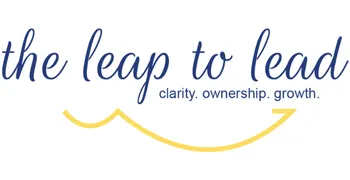YOUR JOURNEY STARTS HERE
The Leap To Lead Blog
Inspiring and practical insights for midlife women ready to start or grow a business. Discover mindset shifts, business tips, and real talk to help you take the leap and lead with purpose.
What to Strengthen Before You Grow Your Business
The business world often encourages acceleration. More offers. Bigger launches. Faster scaling. But sustainable growth is rarely about speed. It is about structure.
Readiness Isn’t About More Confidence. It’s About Clarity
If you’ve been waiting to feel more confident, it might not be confidence you’re missing. It might simply be clarity.
The Hidden Gaps That Keep Smart Women Stuck in Business
When progress stalls, the instinct is often to look for another course, another strategy or another expert to follow. But in many cases, the real gaps are not technical. They are foundational.
You Can’t Plan What You’re Not Ready For
By February, many women begin to question their plans. Not because they lack commitment, but because something feels off. The goals look right on paper, yet progress feels slow or uncomfortable. Motivation dips. Doubt creeps in.




